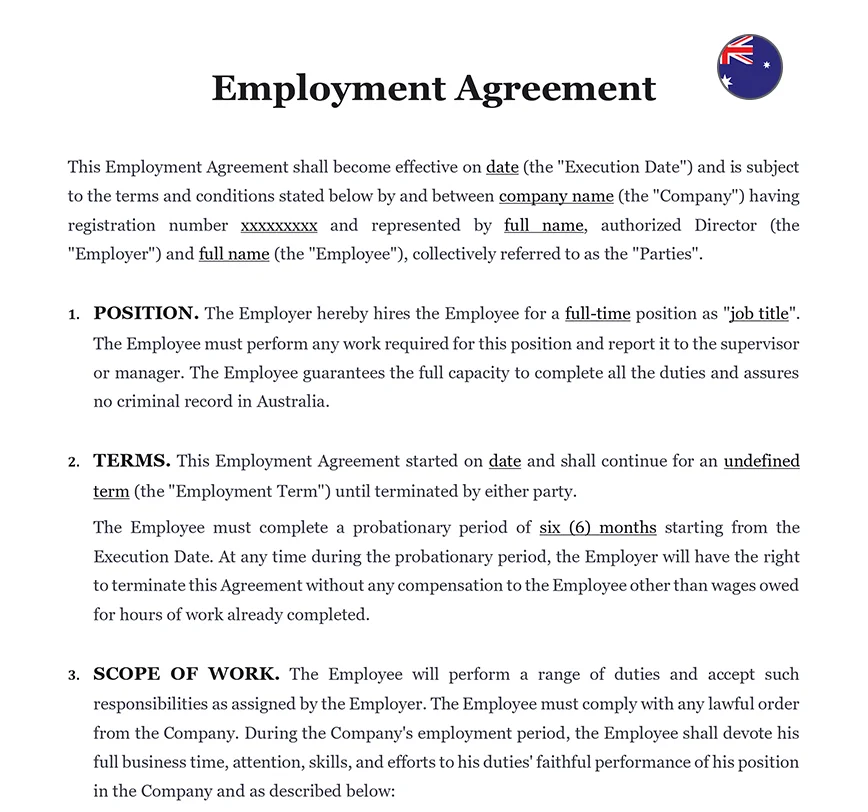Ready to use legal template
Drafted by experienced lawyers
Compliant with Australian law
Ready to use legal template
Drafted by lawyers
Compliant with Australian law
Learn more about Employment Contract in Australia
An Employment Contract is a legally binding agreement between an employer and an employee, outlining the terms of employment, rights, and responsibilities of both parties. It defines key aspects such as job role, salary, working hours, leave entitlements, termination conditions, and confidentiality obligations. In Australia, employment agreements must comply with the Fair Work Act 2009, ensuring fair working conditions and protecting both employer and employee interests. ,Whether hiring full-time, part-time, or casual employees, having a comprehensive contract is essential for compliance with Australian workplace laws. Download our Employment Contract, fully editable in Word format, drafted by legal experts to ensure clarity and compliance with Australian regulations.
Table of contents
-
-
What is an Employment Contract in Australia?
-
What is included in the Employment Contract in Australia?
-
Are there different types of Employment Contract in Australia?
-
What are the main clauses of an Employment Contract?
-
What are the Australian regulations in Australia?
-
Can Australian companies hire foreigners in Australia?
-
How to terminate an Employment Contract in Australia?
-
What is an Employment Contract in Australia?
An Employment Contract in Australia is a legally binding agreement between an employer and an employee that outlines the terms and conditions of employment. It sets forth the rights and responsibilities of both parties and establishes the expectations for the employment relationship.
What is included in the Employment Contract in Australia?
The Employment Contract in Australia typically includes:
| ➤ Names and contact information of the employer and employee |
| ➤ Job title and description of duties |
| ➤ Employment commencement date and duration (if applicable) |
| ➤ Salary or wage details, including payment frequency |
| ➤ Hours of work and any applicable overtime arrangements |
| ➤ Leave entitlements, including annual leave, sick leave, and public holidays |
| ➤ Notice periods for termination of employment |
| ➤ Confidentiality and intellectual property provisions |
| ➤ Any probationary period and conditions |
| ➤ Grievance and dispute resolution procedures |
| ➤ Any other terms and conditions agreed upon by both parties |




